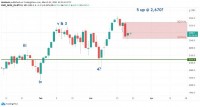|
Bailey McCann 
2012 could have been a lot worse for private equity firms. Yet, compensation and fundraising crept up and so did deal sizes. However, some troubling trends that were common around the crisis like lower equity in deals are also starting to crop back up. Private equity observers have spent years trying to call the great shakeout, is it now finally starting to happen? In a recent article, Bloomberg's David Carey argues that it is, even if it's been a little slow in showing up. Private equity accounts for some $3tn dollars in investments, and ever since 2008's collapse of the credit markets, mega-deals that were popular leading into 2008 have yet to resurface. Some recent deals like Buffet's Heinz buy, or Dell's decision to go public have caused some to say deal size will come back. But more cautious observers aren't so sure. As Andrew Hawkins will explain in detail later in this issue, LPs have remained selective since the 2008 collapse and GPs are being pushed to invest the capital they already have. A number of funds nearing the end of their proposed lifecycle are now stuck without an obvious exit. Carey's article points to other problems like fundraising, diminishing assets and lackluster performance. Fund managers themselves don't expect a big boom in deal flows either. 57% of managers in a recent BDO survey expect to close between two and four new deals during the next 12 months, which is only a small increase from the 47% of fund managers who closed between two and four new deals during 2012 - regardless of fund size. When it comes to opportunities for deal flow, secondary buyouts are expected to be a major driver in 2013. According to BDO's study, 64% of fund managers believe private equity funds exiting their current investments will be the key driver of private equity deal flow in the next 12 months. Another 14% reported private equity funds investing in distressed businesses will be the key driver and 10 percent thought it would be corporates seeking financing for strategic acquisitions. "Secondary buyouts emerged as a prominent exit and deal-sourcing opportunity in 2012," said Ryan Guthrie, Partner in the Private Equity practice at BDO. "Fund managers expect this trend to continue in the New Year as private equity firms seek out opportunities to realize a return on their mature investments, many of which were made before the financial downturn." The Partners Group explains this as a difference between real and perceived value that is now gripping the industry. In their recent Private Markets Navigator study, the firm says private equity is now feeling the asset price inflation that first hit bond markets. They note that, the traditional measure of inflation (the consumer price index) will barely indicate any inflationary pressure and will take years to catch up. Pension funds and other investors are set to lose a significant amount of purchasing power over the course of a decade should they elect to stay in cash or fixed income. "With the currently still elevated risk aversion, investors are piling into perceived safety, pushing the risk premium of supposedly safe assets to historically low levels. As a result, the flow of 'safe-haven-but-yield-chasing' liquidity has broken the link between perceived vs. actual risk and has resulted in large valuation gaps, which we call the 'great new value divide'. In this value divide, perceived and actual risks diverge sharply and investors will have to thoroughly search for real value to separate the wheat from the chaff," says Alfred Gantner, Co-founder and Executive Chairman, The Partners Group. Many of the factors Carey speaks to are echoed by Partner's - subdued growth rates, coupled with reduced yields because of modest interest rates and base inflation, will hit LBO investors in developed and emerging markets alike in 2013. "As investors continue investing in riskier assets in their search for yield, we are concerned they are not fully assessing macroeconomic economic conditions when pricing risk into their investments, which is further widening the divide between actual andperceived investment value," Partner's writes in the Navigator report. The overhang of private equity capital has decreased in Europe and the US, while average debt multiples of leveraged loans are increasing as reflected by the 6x multiple private equity transactions commanded in the third quarter of 2012. Report data shows that, with readilyavailable financing, purchase price multiples remain at elevated levels, averaging 8.7xand 9.7x for the US and Europe in the first three quarters of 2012, respectively. Theresult, they say, "has been an increase in "clearing bids," or the prices paid for quality assets inauctions, particularly within the over-leveraged large cap LBO market. At the same time,renewed interest in M&A on the part of strategic buyers is fueling increased competitionand inflated valuations." For private equity, they contend that this division will cause additional shifts in focus and private equity firms and their investors will have to go deep underground to find relative value opportunities. Specifically, companies that are embracing a global growth strategy will offer more attractive investment opportunities. With large-cap pricing remaining elevated, "going global" is a key theme for Partners Group's small- and mid-cap investment activities, especially as it concerns "new world" companies in emerging markets that target consumers and benefit from the twin tailwinds of demographic trends and low cost manufacturing. Ultimately, the push toward moving into more unique investment opportunities means that companies in the middle market, and potentially even larger firms will have to find new ways to adapt and stand out. | |
|
This article was published in Opalesque's Private Equity Strategies our monthly research update on the global private equity landscape including all sectors and market caps.
|
Private Equity Strategies
Perceptions of Value, is The Private Equity Shakeout Finally Happening? |
|





 RSS
RSS










